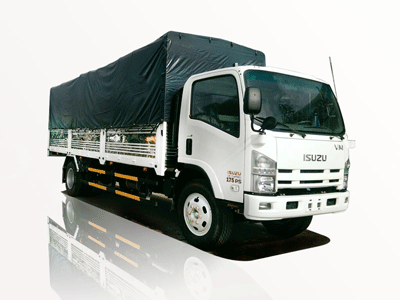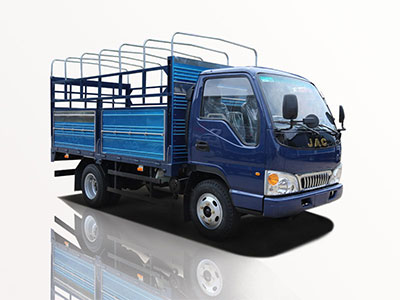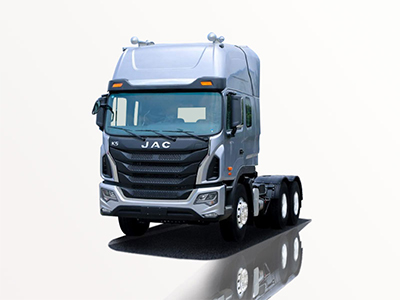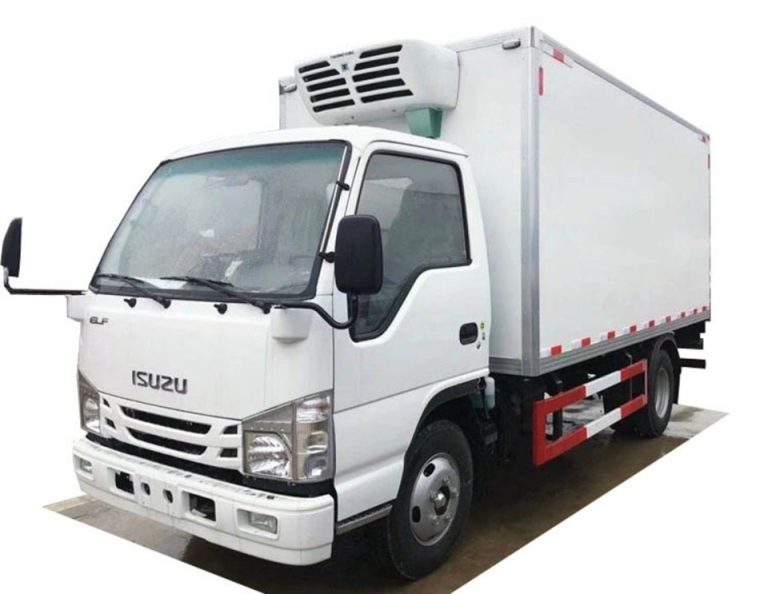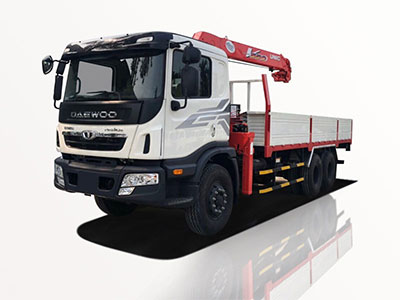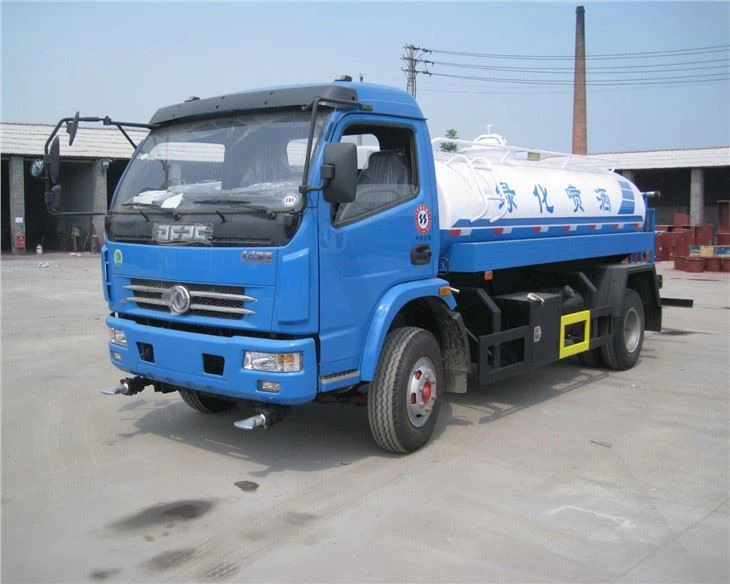In today’s fast-paced world, the need for temperature-sensitive goods has increased significantly. Companies dealing in perishable materials require specialized transportation solutions, and refrigerated van trailers are at the forefront of this demand. These versatile vehicles ensure that food, pharmaceuticals, and other sensitive commodities remain fresh throughout their journey. In this comprehensive article, we will explore every facet of refrigerated van trailers, from their benefits to operational considerations, ensuring you have all the information you need to make informed decisions.
What is a Refrigerated Van Trailer?
A refrigerated van trailer, often referred to as a reefer trailer, is a specially designed trailer that is equipped to transport goods requiring a controlled temperature environment. This type of trailer plays a crucial role in the supply chain by ensuring that products like fruits, vegetables, meat, dairy, and pharmaceuticals are kept in optimal conditions during transit.
Key Features of Refrigerated Van Trailers
- Insulated Walls: The walls of refrigerated trailers are designed with insulation to maintain the desired temperature.
- Refrigeration Unit: Equipped with a compressor and evaporator system, the refrigeration unit keeps the interior cool.
- Temperature Control: Most models come with digital thermostats for precise temperature management.
- Durable Construction: Built to withstand tough conditions, these trailers feature robust materials to protect contents.
Benefits of Using Refrigerated Van Trailers
Utilizing refrigerated van trailers provides numerous advantages for businesses involved in transporting perishable goods. Here are some of the most significant benefits:
1. Preservation of Quality
Temperature control is essential for preserving the quality of perishable items. By maintaining a consistent temperature, refrigerated van trailers help avoid spoilage and degradation, ensuring that products reach their destination in optimal condition.
2. Compliance with Regulations
Many industries, particularly food and pharmaceuticals, are subject to strict regulations regarding temperature control during transport. Refrigerator trailers assist in maintaining compliance with these standards, thus protecting businesses from potential legal issues.
3. Extended Shelf Life
Transporting products in a refrigerated environment significantly extends their shelf life. This benefit is crucial not only for maintaining product quality but also for reducing waste and increasing profitability.
4. Versatility
Refrigerated van trailers can be used for various products, from food items to pharmaceuticals, making them a versatile solution for many industries.
5. Enhanced Customer Satisfaction
Reliable transportation of perishable goods leads to satisfied customers. By ensuring products arrive fresh, businesses can maintain their reputation and encourage repeat business.
Types of Refrigerated Van Trailers
Refrigerated van trailers come in several types, each designed to cater to different transportation needs and preferences.
1. Single Temperature Refrigerated Trailers
These trailers operate at a single temperature setting, making them ideal for transporting a single type of product requiring consistent temperature, such as frozen goods or chilled produce.
2. Multi-Temperature Refrigerated Trailers
Multi-temperature trailers are equipped with distinct compartments that allow for the transportation of different products requiring varying temperatures simultaneously. This type is particularly beneficial for businesses that deal with various temperature-sensitive commodities.
3. Refrigerated Straight Trucks
Designed for shorter distances, refrigerated straight trucks are typically smaller, making them easier to maneuver in urban settings. They serve businesses that require efficient local deliveries of perishable goods.
4. Insulated Dry Vans
While not equipped with a refrigeration unit, insulated dry vans are designed to maintain temperature to some extent. They may be suitable for transporting non-perishable goods or pre-cooled items.
Choosing the Right Refrigerated Van Trailer
Selecting the right refrigerated van trailer for your needs involves several considerations. Here are practical tips to guide you through the process:
1. Determine Your Needs
Evaluate the types of products you will transport. Consider temperature requirements and the volume of goods. Understanding your needs plays a crucial role in choosing the appropriate trailer.
2. Consider Trailer Size
Refrigerated van trailers come in various sizes, typically measured in length and cargo capacity. Choose a size that meets both your average load requirements and any natural increases in future demands.
3. Assess the Temperature Range
Different goods have specific storage temperature requirements. Ensure that the model you select can achieve and maintain these temperatures reliably.
4. Fuel Efficiency
Consider the fuel efficiency of the trailer’s refrigeration unit. Efficient models may cost more upfront but can save on operational costs over the long term.
5. Maintenance Considerations
Research potential maintenance requirements. Some models may offer easier access to critical components, which can simplify repairs and prolong the life of the trailer.
Operational Considerations for Using Refrigerated Van Trailers
To maximize the benefits of refrigerated van trailers, consider these operational aspects:
1. Loading and Unloading Techniques
Proper loading and unloading techniques are essential to maintaining temperature integrity. Always load goods in a way that allows for adequate airflow and minimizes heat exposure.
2. Temperature Monitoring
Utilizing temperature loggers can help monitor interior conditions throughout transit. This practice enhances accountability and ensures compliance with industry standards.
3. Regular Maintenance
Regular maintenance of the refrigeration unit and trailer is essential for preventing breakdowns. Schedule routine inspections to ensure all systems function efficiently.
4. Training Drivers
Drivers should receive training on how to operate and monitor refrigerated trailers effectively. Informed drivers can react swiftly to any temperature fluctuations or system failures.
Cost of Refrigerated Van Trailers
The cost of refrigerated van trailers can vary widely based on several factors, including size, type, and features. Here’s a general breakdown:
1. New Trailers
New refrigerated van trailers typically cost between $30,000 to $100,000, depending on size and specifications. Multi-temperature trailers and those with advanced features will generally be on the higher end of this spectrum.
2. Used Trailers
Used refrigerated van trailers can provide significant savings, with prices ranging from $15,000 to $60,000. When considering a used trailer, inspect its condition and history to ensure reliability.
3. Monthly Operating Costs
| Cost Category | Estimated Monthly Cost |
|---|---|
| Fuel | $1,200 – $2,000 |
| Maintenance | $200 – $400 |
| Insurance | $250 – $600 |
Common Challenges with Refrigerated Van Trailers
While refrigerated van trailers offer numerous benefits, there are some challenges to be aware of:
1. Temperature Fluctuations
Improper loading or system failures can lead to temperature fluctuations. Regular monitoring and correct loading techniques are essential to mitigate this risk.
2. Initial Cost
The upfront cost of acquiring refrigerated van trailers can be significant, particularly for high-capacity or specialized models. Budgeting appropriately is essential for businesses considering this investment.
3. Maintenance Requirements
Refrigerated trailers require routine maintenance to ensure efficient operation. Businesses must be prepared for these ongoing costs and time commitments.
Innovations in Refrigerated Van Trailers
As technology evolves, so do refrigerated van trailers. Here are some recent innovations:
1. Advanced Thermodynamic Systems
New refrigeration systems improve efficiency and reduce energy consumption, making it easier for businesses to maintain cost-effectiveness.
2. IoT and Smart Technologies
Internet of Things (IoT) technology allows for real-time monitoring of temperature and humidity levels, ensuring optimal conditions and providing alerts for any deviations.
3. Sustainable Refrigeration Options
Environmental consciousness is prompting manufacturers to create refrigeration systems with reduced greenhouse gas emissions and enhanced energy efficiency.
FAQs about Refrigerated Van Trailers
1. How does a refrigerated van trailer work?
A refrigerated van trailer uses an onboard refrigeration unit to cool the interior. The unit circulates cold air and maintains a consistent temperature to keep products fresh.
2. What temperature range can refrigerated van trailers maintain?
Refrigerated van trailers can maintain temperatures typically between -20°F to 70°F (-29°C to 21°C), depending on the needs of the transported goods.
3. Can refrigerated trailers be used for long-distance transport?
Yes, refrigerated van trailers are designed for long-distance transport, ensuring products remain in optimal condition during lengthy journeys.
4. How often should refrigerated van trailers be serviced?
Regular maintenance is essential. It is recommended to service refrigerated van trailers every 1,000 to 2,000 miles or at least twice a year.
5. What are the most common uses for refrigerated van trailers?
The most common uses include transporting food items like meat, dairy, and produce, as well as pharmaceuticals and other temperature-sensitive products.
6. Are there specific training requirements for drivers of refrigerated van trailers?
Yes, drivers should be trained on the specific operation of the refrigeration unit and monitoring systems to ensure optimal performance during transit.
